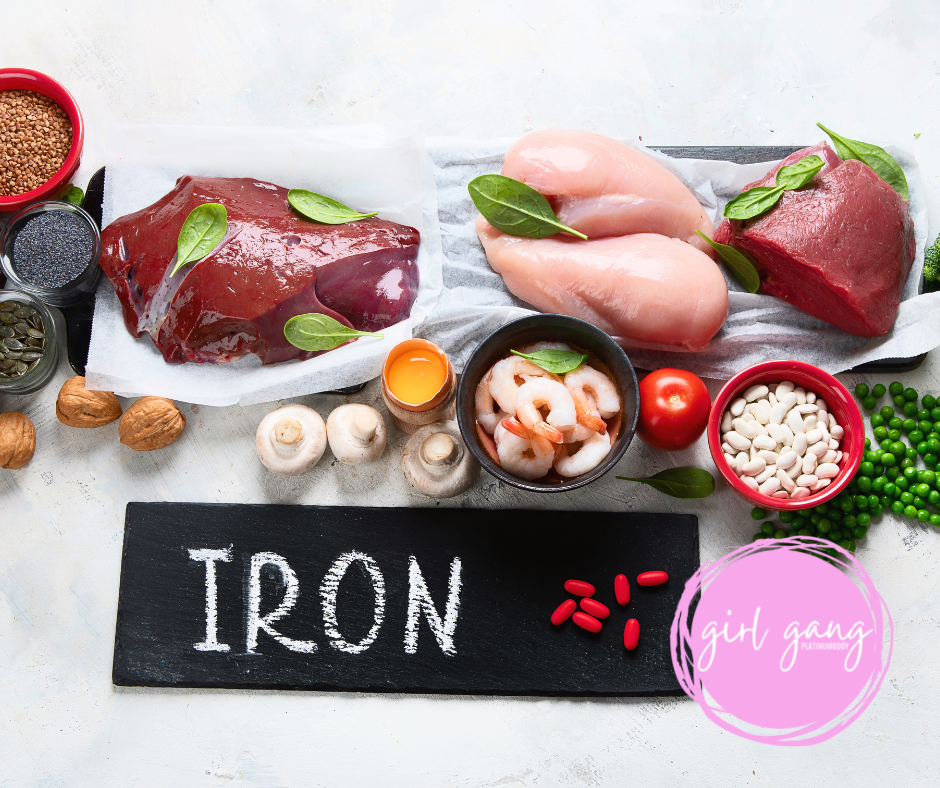
Iron is an essential mineral that plays a crucial role in maintaining good health. It’s a key component of hemoglobin, the protein in red blood cells that carries oxygen from the lungs to the rest of the body. Iron is also involved in many other bodily processes, including muscle function and the production of hormones and collagen.
Many women just don’t get enough iron, which can lead to all sorts of health problems. Iron deficiency typically causes fatigue, weakness, dizziness and difficulty concentrating, chest pain, it can also increase the risk of infection and other health problems.
Getting enough iron is important, but it can be tough because your body can’t make iron all on its own. It must be obtained from the diet, just another reason to grab a copy of my Clean Eating Guidelines For Busy Women to help you eat better. Here are my hot tips to help you increase your iron intake:
- Eat iron-rich foods. Find foods that are high in iron, this can mean including red meat, poultry, seafood, beans, beans, fortified breads and leafy green vegetables. Try to include these foods in your day to get more iron.
- Enhance iron absorption. Iron from plant-based foods (non-heme iron) is not as easily absorbed by the body as iron from animal sources (heme iron). To enhance iron absorption from plant-based foods, try eating them with a source of Vitamin C, such as citrus fruit or tomatoes. Why this is important as they work in synergy, the Vitamin C actually helps you absorb iron better. So aim to eat something you know has Vitamin C around the time of your iron-rich foods. For example, when you have read meat combined with tomatoes.
- Avoid substances that inhibit iron absorption. Some substances can inhibit the absorption of iron, including coffee, tea, and calcium. Try to avoid consuming these substances at the same time as iron-rich foods to maximize iron absorption. So if you are going to have a cup of tea, time it so it’s not at the same time as you consume your iron supplement or your steak sandwich.
- Take iron supplements. If you can’t get enough iron from your diet, consider taking an iron supplement. Talk to your doctor to determine the right dosage for you. The only real why to determine if you are iron deficient is to have a blood test. This is important because taking too much iron can bring in a whole new set of its own problems.
The main points here are, know if your iron is low by speaking to your GP, make an effort every day to consume foods high in iron and pay attention to what you combined them with and when you eat them. By following these tips, you can easily increase your iron intake and enjoy the many health benefits of this important mineral. So make sure to get your blood tested if you are feeling the symptoms of low iron and aim to get enough iron from your food every day!
Love Renee xxx
